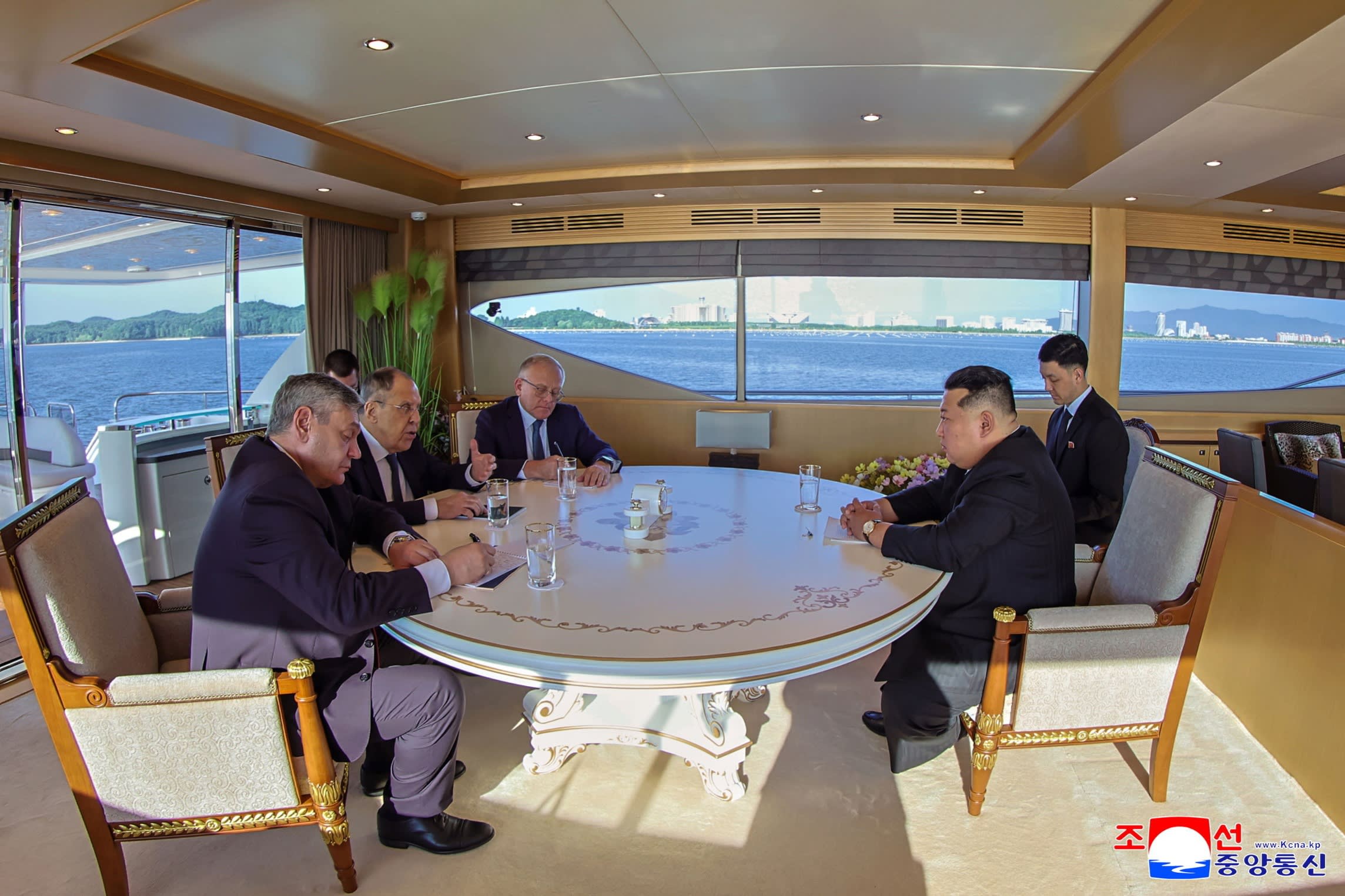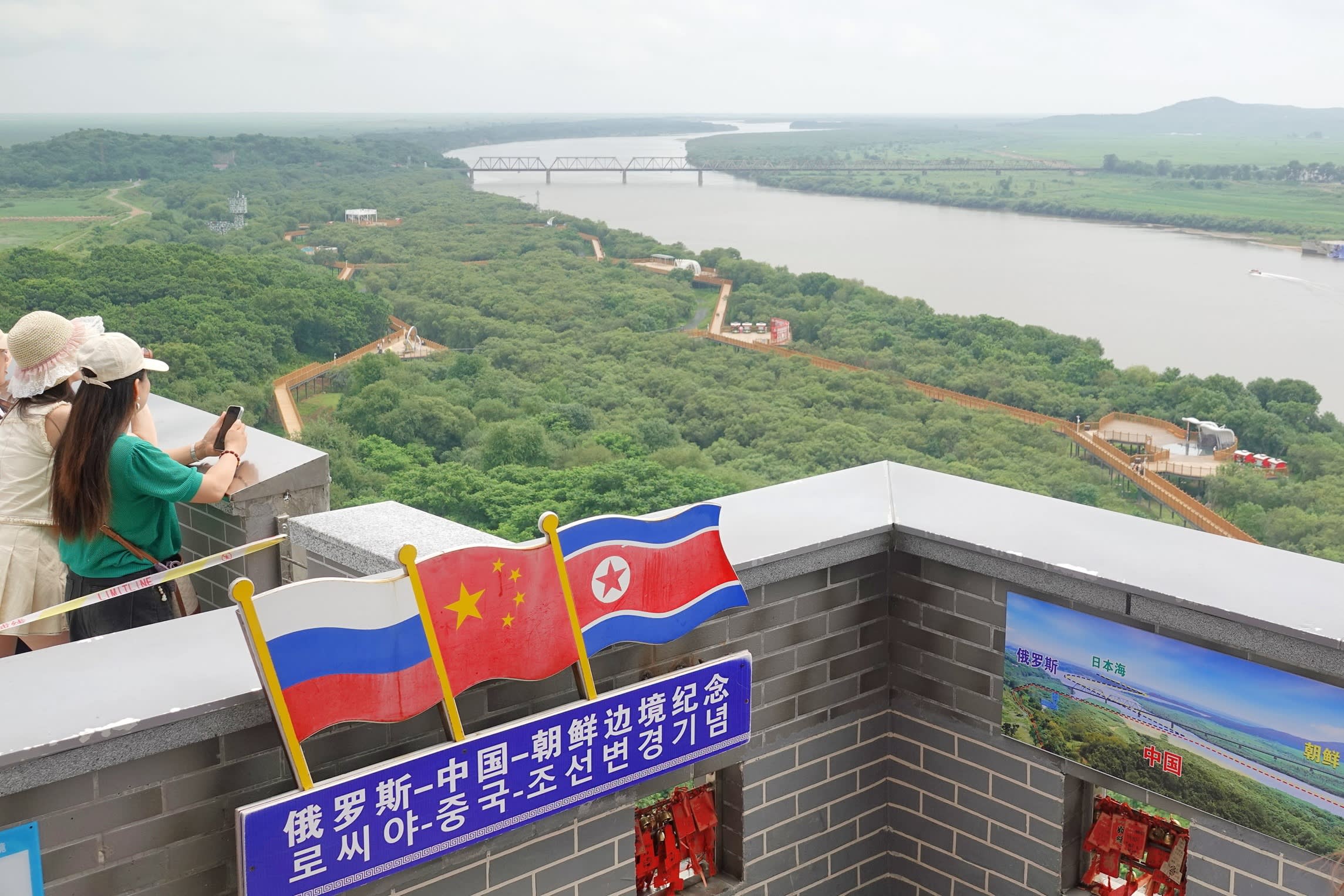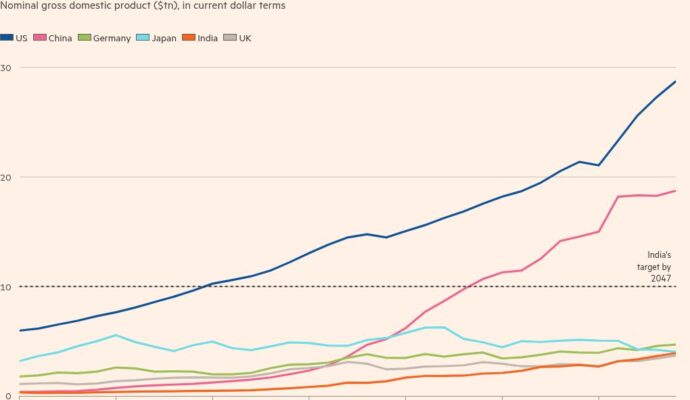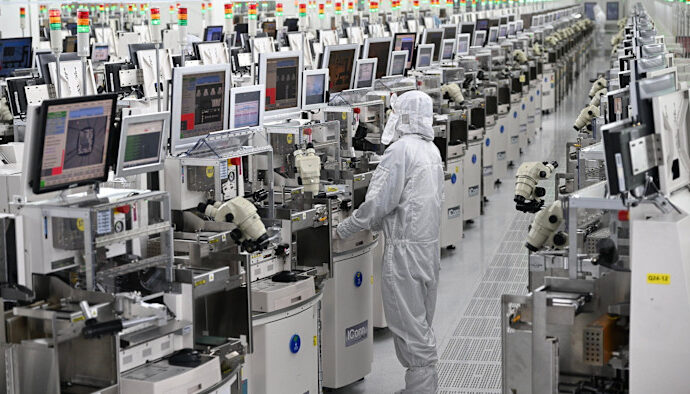North Korean apples have begun appearing on Russian supermarket shelves and exporters from the reclusive dictatorship are planning to enter the Russian market, as closer ties between President Vladimir Putin and Kim Jong Un begin to bear fruit for both countries.
Twelve months after the leaders forged a new strategic partnership at a lavish ceremony in Pyongyang, deeper commercial co-operation between Russia and North Korea is taking root and extending beyond Pyongyang’s military support for Moscow’s full-scale invasion of Ukraine, offering the isolated regime an economic lifeline.
North Korean fishing boats have swarmed into waters off Russia’s far east coast in recent months, while North Korean manufacturers of products from jam and sausages to beer and accordions have registered trademarks with Russia’s Federal Service for Intellectual Property.
Russia is building a $100mn road bridge over the Tumen river along the countries’ land border, and plans are in the works to reopen a 10,000km rail link between their capitals. Over the past year the heads of North Korean universities have travelled to meet their Russian counterparts in Vladivostok, while North Korean athletes have competed in Russia and Russian theatre troupes have performed in Pyongyang.
Russian foreign minister Sergei Lavrov met Kim on the leader’s yacht near the North Korean beach resort of Wonsan last week. Kim said his country would “unconditionally support” Russian goals in Ukraine, while Lavrov said Russia “respects and understands” North Korea’s rationale for pursuing a nuclear weapons programme.

Andrei Lankov, a North Korea expert at Kookmin University in Seoul, said that “having previously downplayed the extent of their military co-operation, the two countries now want the world to know that their relationship is being built to last”.
The North Korean economy largely relies on production of coal, concrete and industrial plastics, and has been kept afloat by food, fuel and fertiliser from neighbouring China, its biggest trading partner. More recently, the regime has also raised hundreds of millions of dollars through sophisticated cryptocurrency hacks.
Moscow’s patronage could have a “genuinely transformative” effect on the North Korean economy by reviving North Korea’s mining and agricultural sectors, said Peter Ward, a research fellow at the Sejong Institute think-tank.
“Even modest investments in rural infrastructure could bring real benefits for swaths of the North Korean population,” he said.
Pyongyang sealed its commitment to closer ties last year, supplying a grateful Kremlin with much-needed munitions and manpower, including the deployment of an estimated 13,000 troops to support Russia’s forces in the Kursk region.
The deployment is believed to have suffered heavy casualties, but earned praise from Russian security chief Sergei Shoigu, who hailed the North Korean soldiers for defending Russia “as if it was their own motherland”.
According to a recent report by South Korean military intelligence cited by South Korean state-owned news agency Yonhap last week, Pyongyang has also supplied 12mn rounds of shells to Russia since October, and is likely to dispatch more troops this summer.
In return, the deployment has generated billions of dollars for Kim’s regime in cash transfers, in-kind payments and technology transfers, according to expert analyses.
Last month, Shoigu announced a further deployment of 6,000 North Korean military personnel, among them 5,000 military construction workers to Kursk, which Lankov said appeared to be “a trial run to see how North Korean workers can fill Russia’s considerable labour needs” and free up manpower for the war.

That partnership could outlive Russia’s wartime effort. Ward suggested that North Korean workers could be sent to help alleviate chronic labour shortages in Russia’s depopulated Far East. This would also be “a real cash cow for Pyongyang that is likely to last beyond the end of the Ukraine conflict”, he said.
Ward cautioned, however, that Pyongyang’s past behaviour suggested it would squander any Russian windfall. “While some of it will be spent on improving conditions for some of its own people, in reality a lot of it is likely to be wasted on prestige projects like skyscrapers in Pyongyang and other privileges for the elite,” he said.
Lankov noted that the burgeoning trade was likely to be of limited financial benefit to Russia. “Most of the items that North Korea exports are of little or no interest to Russian importers,” he said.
He added that, unlike Chinese companies — whose North Korean businesses have historically been guided by ethnic Chinese communities in the country — Russian companies would struggle to operate without the assistance and knowhow of local networks.
Beyond commercial ties, however, the countries’ military partnership will afford both Moscow and Pyongyang greater capacity to resist western diplomatic pressure even after the fighting in Ukraine subsides, analysts said.
“Moscow having access to Pyongyang’s reserves of artillery shells and ballistic missiles will continue to be useful as a means to intimidate Ukraine and other countries, giving Russia extra leverage in future negotiations,” Ward said.
Victor Cha, Korea chair at the Center for Strategic International Studies think-tank in Washington, added that Russian financing and technology were likely to accelerate the progress of North Korea’s weapons programme.
In March, Donald Trump signalled his intention to re-engage in diplomacy with Pyongyang, describing the North as a “big nuclear nation”, and Kim as a “very smart guy”.
But Cha said the US president would have to pay a far steeper price to convince Kim to slow or abandon his nuclear weapons than he was prepared to offer during his first term, when the two leaders met three times.
“Trump should not imagine that his bonhomie will somehow sour Kim on a lucrative relationship with Russia, or convince the North Korean leader to cede the tremendous leverage he now enjoys.”


